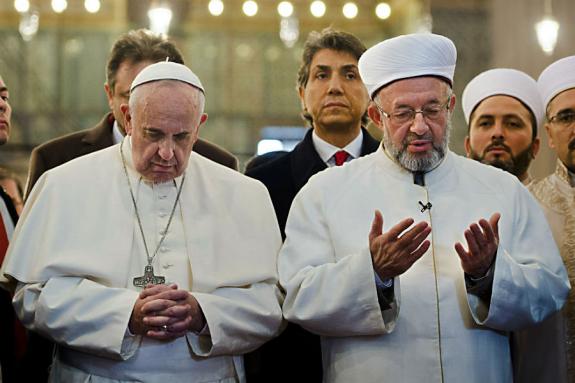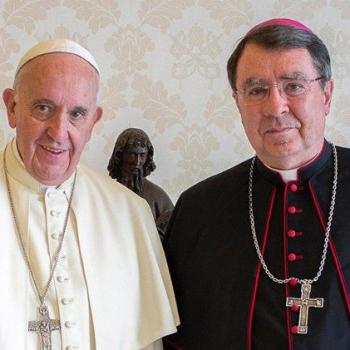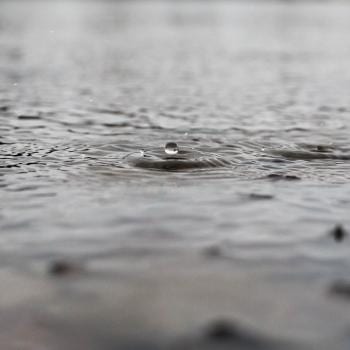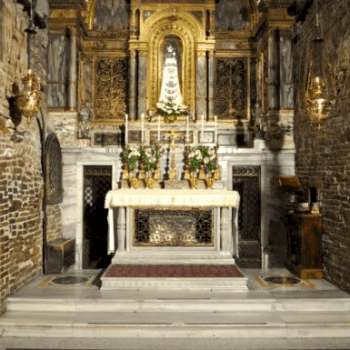Worth re-reading: Nostra Aetate, “In Our Time,” the Catholic Church’s “declaration on the relation of the Church to non-Christian religions.” It was promulgated in 1965 during the Second Vatican Council.
In this short document, we find the following:
Other religions found everywhere try to counter the restlessness of the human heart, each in its own manner, by proposing “ways,” comprising teachings, rules of life, and sacred rites. The Catholic Church rejects nothing that is true and holy in these religions. She regards with sincere reverence those ways of conduct and of life, those precepts and teachings which, though differing in many aspects from the ones she holds and sets forth, nonetheless often reflect a ray of that Truth which enlightens all men. Indeed, she proclaims, and ever must proclaim Christ “the way, the truth, and the life” (John 14:6), in whom men may find the fullness of religious life, in whom God has reconciled all things to Himself.
The Church, therefore, exhorts her sons, that through dialogue and collaboration with the followers of other religions, carried out with prudence and love and in witness to the Christian faith and life, they recognize, preserve and promote the good things, spiritual and moral, as well as the socio-cultural values found among these men.
The Church regards with esteem also the Muslims. They adore the one God, living and subsisting in Himself; merciful and all- powerful, the Creator of heaven and earth, who has spoken to men; they take pains to submit wholeheartedly to even His inscrutable decrees, just as Abraham, with whom the faith of Islam takes pleasure in linking itself, submitted to God. Though they do not acknowledge Jesus as God, they revere Him as a prophet. They also honor Mary, His virgin Mother; at times they even call on her with devotion. In addition, they await the day of judgment when God will render their deserts to all those who have been raised up from the dead. Finally, they value the moral life and worship God especially through prayer, almsgiving and fasting.
Since in the course of centuries not a few quarrels and hostilities have arisen between Christians and Moslems, this sacred synod urges all to forget the past and to work sincerely for mutual understanding and to preserve as well as to promote together for the benefit of all mankind social justice and moral welfare, as well as peace and freedom.
As the sacred synod searches into the mystery of the Church, it remembers the bond that spiritually ties the people of the New Covenant to Abraham’s stock.
Thus the Church of Christ acknowledges that, according to God’s saving design, the beginnings of her faith and her election are found already among the Patriarchs, Moses and the prophets. She professes that all who believe in Christ—Abraham’s sons according to faith—are included in the same Patriarch’s call, and likewise that the salvation of the Church is mysteriously foreshadowed by the chosen people’s exodus from the land of bondage. The Church, therefore, cannot forget that she received the revelation of the Old Testament through the people with whom God in His inexpressible mercy concluded the Ancient Covenant. Nor can she forget that she draws sustenance from the root of that well-cultivated olive tree onto which have been grafted the wild shoots, the Gentiles.
Read it all. And pray for peace.
Footnote: In 2015, my colleague at CNEWA, the Rev. Elias Mallon, S.A., Ph.D., offered his thoughts on this landmark document. He wrote this to mark the 50th anniversary of its release:
For centuries, the church regarded other religions of the world as, at best, competitors and, at worst, repositories of error and even evil. When attempts were made to understand other religions, it was to refute them. While there were a few open spirits, such as the Rev. Matteo Ricci, S.J., the Rev. Louis Massignon and others, who tried to understand other religions as they were experienced by the believers of those religions, this was the exception and not the rule. The declaration, Nostra Ætate, however, completely transformed the atmosphere between the Catholic Church and other world religions from one of distrust and even disdain to one of respect and dialogue. The declaration makes the challenge: “The Church, therefore, exhorts her sons, that through dialogue and collaboration with the followers of other religions, carried out with prudence and love and in witness to the Christian faith and life, they recognize, preserve and promote the good things, spiritual and moral, as well as the socio-cultural values found among these men.”
…Fifty years after Nostra Ætate, there remains a great deal to be done. Catholic Near East Welfare Association knows all too well that conflicts with elements of religious motivation still rage throughout our world. And, in places like the Middle East, it seems to have worsened. Much of CNEWA’s work is geared to relieving the suffering of people who are victims of these conflicts. There are also still far too many places in the world where Christians and other peoples of faith suffer for what they believe, often at the hands of other believers. Nonetheless, the trajectory set by the declaration has been nothing short of incredible. The Catholic Church — as well as other Christian communities around the world — has set up dialogues with the major religions of the world. Programs of education have made what was once strange and exotic better understood and familiar. In an almost prophetic way, Nostra Ætate prepared the way spiritually for the huge movement and displacement of peoples that would take place in the second half of the 20th and the beginning of the 21st centuries.













